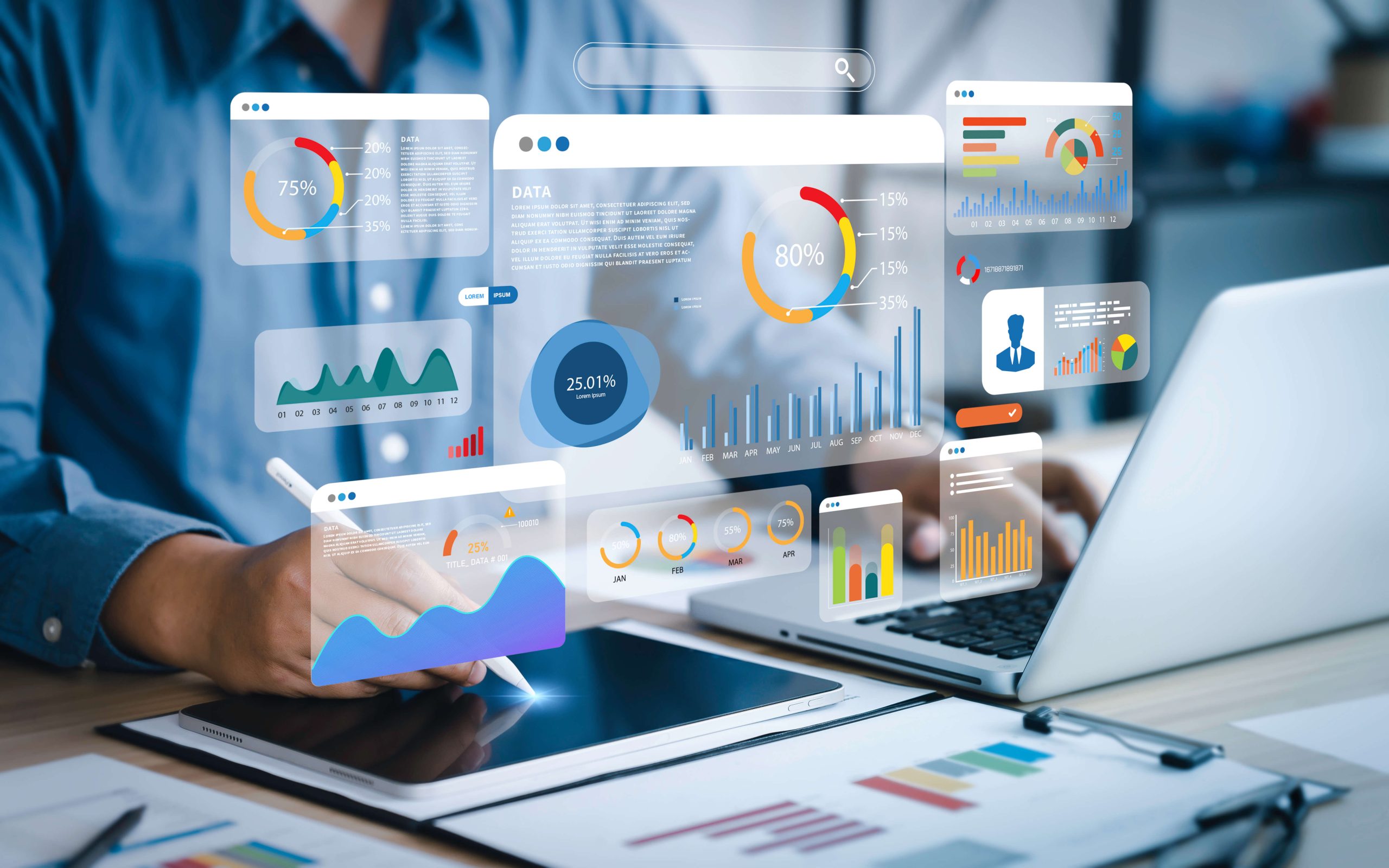
The Future of Business – In today’s fast-paced world, keeping up with business news is crucial for professionals and entrepreneurs alike. Staying informed about the latest trends and developments can offer valuable insights and a competitive edge. This article explores the most significant trends shaping The Future of Business landscape, from technological advancements to shifting consumer behaviors.
Table of Contents
Technological Advancements Driving Change
The Rise of Artificial Intelligence (AI)
The Future of Business like Artificial Intelligence (AI) continues to transform industries, offering innovative solutions and efficiencies. From chatbots enhancing customer service to predictive analytics improving decision-making, AI is a game-changer.
AI in E-commerce
In The Future of Business e-commerce, AI is revolutionizing customer experiences. Personalized recommendations, dynamic pricing, and inventory management are just a few areas where AI is making an impact.
AI in Healthcare
Healthcare is another sector benefiting from AI. From diagnosing diseases to developing personalized treatment plans, AI is improving patient outcomes and reducing costs.
Blockchain Beyond Cryptocurrency
The Future of Business like Blockchain technology is no longer confined to cryptocurrencies. Its potential applications in supply chain management, secure transactions, and transparent record-keeping are gaining traction.
Blockchain in Supply Chain Management
By providing an immutable record of transactions, blockchain enhances transparency and efficiency in supply chains. This technology helps prevent fraud and ensures product authenticity.
Blockchain in Finance
In finance, blockchain is streamlining processes, reducing costs, and increasing security. Smart contracts and decentralized finance (DeFi) are reshaping the industry.
Shifting Consumer Behaviors
The Rise of Ethical Consumerism
Consumers are increasingly prioritizing ethical considerations in their purchasing decisions. Businesses that adopt sustainable practices and demonstrate social responsibility are gaining favor.
Sustainability in Fashion
The fashion industry is witnessing a shift towards sustainability. Brands are adopting eco-friendly materials and ethical production practices to meet consumer demand for transparency.
Ethical Technology
According to the The Future of Business companies are being held accountable for their impact on society. Issues like data privacy, misinformation, and the environmental impact of technology are becoming central concerns for consumers.
The Experience Economy
Consumers are valuing experiences over products. This shift is influencing how businesses market their offerings and design customer interactions.
Immersive Retail Experiences
Retailers are creating immersive experiences to attract customers. From augmented reality (AR) fitting rooms to personalized in-store experiences, the focus is on engagement and personalization.
The Rise of Subscription Services
Subscription services are booming as consumers prefer convenience and personalized offerings. This model is gaining popularity across various industries, from streaming services to meal kits.
The Impact of Remote Work
The Hybrid Work Model
The pandemic accelerated the adoption of remote work, leading to the rise of the hybrid work model. This model combines remote and in-office work, offering flexibility and improved work-life balance.
Benefits of Hybrid Work
The Future of Business like Hybrid work offers numerous benefits, including reduced commute times, increased productivity, and greater employee satisfaction. Companies are rethinking office spaces and investing in digital collaboration tools.
Challenges of Hybrid Work
Despite its benefits, hybrid work presents challenges such as maintaining company culture, ensuring effective communication, and addressing cybersecurity risks.
Remote Work and Real Estate
The shift to remote work is impacting the real estate market. Demand for office space is declining, while residential properties in suburban areas are becoming more attractive.
Co-working Spaces
Co-working spaces are evolving to meet the needs of remote workers. Flexible leases, networking opportunities, and amenities are drawing freelancers and remote employees.
Urban vs. Suburban Living
With remote work becoming more common, there’s a shift in preference towards suburban living. Larger homes and a better quality of life are driving this trend.
The Importance of The Future of Business Digital Transformation
Embracing Cloud Computing
Cloud computing is at the heart of digital transformation. It offers scalability, flexibility, and cost savings, enabling businesses to innovate and adapt quickly.
Cloud-Based Solutions for Small Businesses
Small businesses are leveraging cloud-based solutions to compete with larger firms. These solutions offer access to advanced tools and services without significant upfront investment.
The Role of Cloud in Data Security
As businesses move to the cloud, data security becomes paramount. Cloud providers are investing in robust security measures to protect sensitive information and ensure compliance with regulations.
The Role of Data Analytics
Data analytics is becoming indispensable for businesses. It provides insights into customer behavior, market trends, and operational efficiency, enabling data-driven decision-making.
Predictive Analytics in Marketing
Predictive analytics is helping marketers anticipate customer needs and tailor campaigns for better engagement. This approach leads to higher conversion rates and improved customer satisfaction.
Data-Driven Product Development
Businesses are using data analytics to inform product development. By understanding customer preferences and pain points, companies can create products that better meet market demands.
Navigating Regulatory Changes
Data Privacy Regulations
Data privacy regulations are becoming stricter, with laws like the General Data Protection Regulation (GDPR) setting high standards. Businesses must ensure compliance to avoid hefty fines and reputational damage.
The Impact of GDPR
GDPR has far-reaching implications for businesses worldwide. It requires companies to be transparent about data collection and usage, giving consumers greater control over their personal information.
Preparing for Future Regulations
As data privacy concerns grow, new regulations are likely to emerge. Businesses must stay informed and proactive in adapting to changing legal landscapes.
Trade Policies and Tariffs
Global trade policies and tariffs are influencing business strategies. Companies must navigate these complexities to manage costs and maintain competitiveness.
Impact on Supply Chains
Tariffs and trade restrictions are disrupting supply chains. Businesses are diversifying suppliers and exploring local sourcing to mitigate risks.
Strategies for Mitigating Trade Risks
To manage trade risks, companies are investing in risk management strategies, such as hedging and supply chain resilience.
The Growing Importance of Corporate Social Responsibility (CSR)
CSR as a Competitive Advantage
Corporate Social Responsibility (CSR) is becoming a key differentiator. Companies that demonstrate a commitment to social and environmental causes are building stronger brand loyalty.
CSR in Branding
Brands are integrating CSR into their core values and marketing strategies. Highlighting CSR initiatives helps attract socially conscious consumers and investors.
Measuring CSR Impact
Measuring the impact of CSR initiatives is crucial. Companies are adopting frameworks like the Global Reporting Initiative (GRI) to assess and communicate their contributions.
The Role of ESG Investing
Environmental, Social, and Governance (ESG) investing is on the rise. Investors are evaluating companies based on their ESG performance, influencing corporate behavior.
ESG Metrics in Investment Decisions
ESG metrics are becoming integral to investment decisions. Companies with strong ESG performance are attracting more capital and achieving higher valuations.
Challenges in ESG Reporting
Despite its importance, ESG reporting presents challenges, such as the lack of standardization and the risk of greenwashing. Companies must ensure transparency and accuracy in their disclosures.
Conclusion
The Future of Business landscape is evolving rapidly, driven by technological advancements, shifting consumer behaviors, and regulatory changes. Staying informed about these trends is essential for businesses to thrive in an increasingly competitive environment. By embracing innovation, prioritizing sustainability, and adapting to new realities, companies can position themselves for long-term success.











:max_bytes(150000):strip_icc()/Term-Definitions_Digital-Marketing-5ae6ea1aee934b02a94a1a4d9401443d.jpg)




